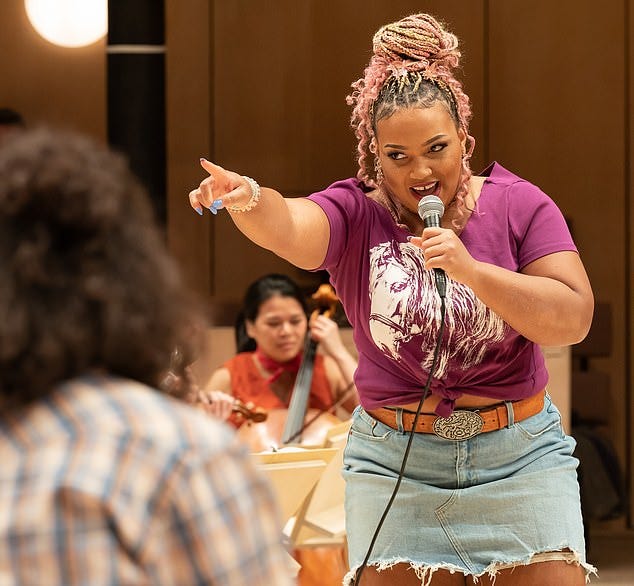Thank you for reading the JasonWard Creative Substack which is a reader supported publication. By taking out a paid subscription you will have access to this post and over 100 articles, interviews, reviews, podcasts and playlists.
This week I want to share some experience from my consultancy practise and I hope you find it valuable. This article is based on work with several creatives and approaches a subject that many creatives find challenging - saying no!
A couple of summers ago I saw Daniel Fish’s incredible reworking of the classic show Oklahoma. The production on a hot June day at the Young Vic in South London was a revelation in so many ways: instead of a hokey hoe down we got honesty, brutality and sexuality. The wonderful Marisha Wallace played Ado Annie who’s big number ‘Cain’t Say No” contains a lyric that resonates with so many creatives.
“I'm just a girl who cain't say no
I'm in a terrible fix
I always say 'come on, let's go'
Just when I oughta say 'nix'“
The problem for Annie is that she ‘cain’t say no’ to men but the problem for creatives is that we can’t say no to new work. There are many of us who, regardless of a packed diary, still feel we have to say ‘yes’ if somebody asks. I have worked with creatives who say yes to work that is not even their speciality or accept contracts without working out if it is profitable for them financially, personally or professionally.
There are many reasons for this which include the creatives fear of not getting any other work ever, plain and simple people pleasing and even imposter syndrome telling us that it is incredible that we are being offered money for our creativity.
There is also a basic lack of being able to prioritise our own needs. This can stem from how creatives and creative work become indivisible - we literally become our work. Think of how we might describe a painting as ‘a Renoir’ rather than ‘a painting by Renoir’. This sense of becoming our work applies to many of us: we don’t ‘get home from work and watch the football’ instead we work until we sleep. This means that we devalue ourselves if we are not doing creative work which can be damaging to our self esteem and mental health. Less work does not equal less of a person - please remember this!

The further dichotomy for creatives is that earning a living from our creativity is difficult and so taking on extra work also means earning money - and, let’s be honest, money is a motivator. Extra work also means extra time doing the thing we love doing - which is being creative. And, up to a point extra time being creative and earning money are both positive and welcome outcomes. However, there is a caveat to this: If we want to grow our creative business we also need to carve out time for personal and business development or else we (and our business) will stagnate and fail.
Keep reading with a 7-day free trial
Subscribe to The Culture Stack to keep reading this post and get 7 days of free access to the full post archives.




